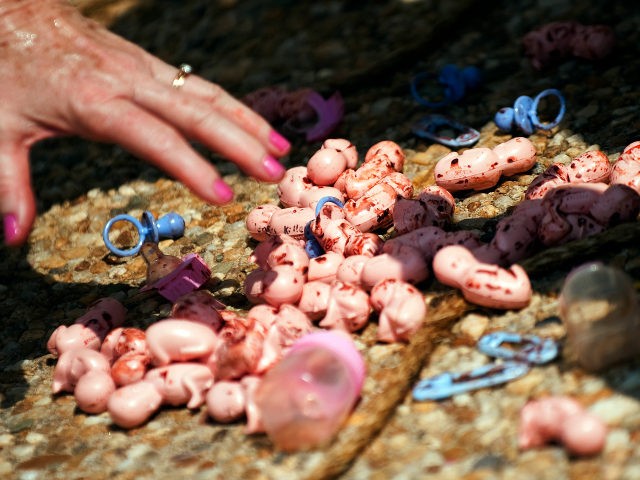Catholic League President Bill Donohue defended an Oklahoma lawmaker Friday who has come under fire for comparing abortion to slavery.
In comparing the evil of abortion to the evil of slavery, State Rep. Jim Olsen “made a great analogy,” Dr. Donohue wrote. “He is a consistent champion of human rights.”
“None of us would like to be a slave,” Olsen said Wednesday during a meeting of the House Public Health Committee, which was considering several pro-life bills.
And yet between being aborted and being enslaved, Olsen said, “If I had my choice, I guess I’d be a slave. At least the slave has his life. Once your life is gone, it’s gone.”
“And I’m not minimizing slavery,” he continued. “I’m illustrating the terrible injustice that was finally, finally erased in Great Britain and almost eventually the entire world.”
As Donohue noted, pro-abortion activists “exploded” over Olsen’s word, accusing him of using “racist terms” in a “cavalier” fashion, while others claimed his comments were right out of the “Dark Ages.”
Olsen has since stood his ground, saying he has no intention of making an “apology” for his comments.
“One evil at one time was acceptable in our society, and now it’s not,” he said. “I look forward to the time when we stop killing babies.”
Historically, Olsen’s argument is not only morally defensible, “it has a very American pedigree,” Donohue wrote, recalling that Stephen Douglas contended that slavery should not be seen as a moral issue but a democratic one, just as the pro-abortion lobby contends today in the case of the killing of unborn children.
Abraham Lincoln, on the other hand, insisted that “all men are created equal” and that their “unalienable rights” come from our Creator, not government, Donohue added.
Abortion also violates our “unalienable rights,” Donohue wrote. “Indeed, it violates the most basic of all rights—the right to life.”
Olsen is not alone in comparing abortion to slavery. A number of conservative black leaders have also pointed out the similarities between the two issues.
Former presidential candidate Alan Keyes argued forcefully for the inviolable right to life of all human beings, including the unborn, drawing an analogy between the abortion issue today with the slavery issue in the 19th century.
According to Keyes, slavery was only possible by dehumanizing blacks, and abortion is only possible by dehumanizing unborn children.
Similarly, Dr. Alveda King, the niece of Rev. Martin Luther King Jr., has asserted that abortion is “without a doubt the most significant civil rights issue of our time,” comparable to black slavery two centuries ago.
“No racial group in America, historically and currently, has been more left out of societal protection or suffered more deliberate discrimination, dehumanization, agonizing dismemberment and death legally imposed upon them than Black children,” she declared in 2020. “Nearly 160 years after auction and purchase of slaves was prohibited, body parts of Black babies are still being sold across America by the abortion industry.”
“For many, many decades, Black women and babies have been disproportionately targeted by the abortion industry,” Dr. King wrote. “Babies of Black mothers are three times more likely to be aborted than White babies, resulting in 20 million Black children having been legally killed in America since 1973.”
Rev. Clenard Childress, the black pastor of the New Calvary Baptist Church in Montclair, N.J, has made the same analogy, insisting that “the most dangerous place for an African American is in the womb.”
As president of Life Education and Resource Network, Childress also established the pro-life website Blackgenocide.org, which draws parallels between black slavery in the United States, the Nazi party programs in Germany, and the pro-abortion movement in America.
Childress has used a huge poster of the confederate flag side by side with the picture of an aborted child to make his point.
“This connects the dots better than the others,” he said.

COMMENTS
Please let us know if you're having issues with commenting.